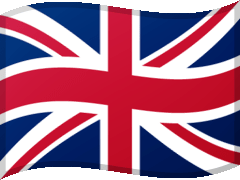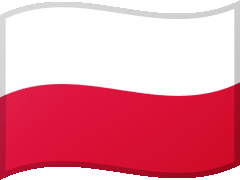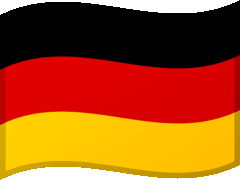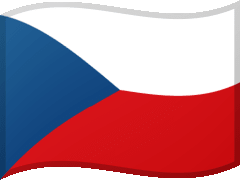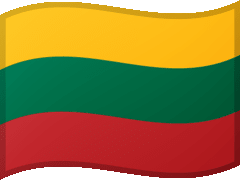On 29 December 1989, the last communist parliament elected the opposition leader, the writer Václav Havel, as the new president of Czechoslovakia. This was a result of the "Velvet Revolution", which had begun only a few weeks earlier - on 17 November. After the hopes of the Prague Spring had been crushed by the intervention of Warsaw Pact troops (1968), the Czechs and Slovaks remained passive for two decades. Few people supported the activities of the opposition grouped around Charter 77. It was not until the second half of the 1980s that the situation started to change gradually, new opposition groups were formed and Catholic circles became active. The “Velvet Revolution” was initiated by the brutal pacification of a student demonstration. Within a few weeks, strikes and demonstrations forced the communists to make concessions.
The Czechoslovak Socialist Republic entered the year 1990, not only with a new president but also with a government of national accord formed on 10 December 1989. Almost half of the ministerial posts (10 out of 21) were still held by representatives of the Communist Party of Czechoslovakia (KSČ). These proportions however, quickly changed. As early as January 1990, Prime Minister Marián Čalfa left the KSČ, while in February the Civic Forum (CF, Czech Republic) and the Society Against Violence (SAV, Slovakia), which emerged during the Velvet Revolution, already held a majority in government.
The main task of the government was to prepare for free elections. In anticipation of these, the co-optation mechanism was used to appoint nearly 150 new deputies to the National Assembly of the Czechoslovak Socialist Republic. As early as January, the Parliament passed a law enabling the formation of political parties, as well as an electoral law. In March, further legislation was adopted to secure civil liberties, including the right of association and assembly and the freedom to print. A legal basis for economic reforms was also established by, among other things, introducing equality of all forms of business ownership. The abolition of the death penalty was of symbolic significance. The calendar of national holidays was changed, and many streets regained their patrons from before 1948, or new ones, who replaced communist heroes. The most visible sign of the changes was the restoration of the city of Zlin to its historical name instead of the one that had been in force until the end of 1989. (Gottvaldov, in honour of the leader of the KSČ and the first communist president).
Soon, in February, an agreement was signed on the withdrawal of Soviet troops from Czechoslovakia, and this process ended in June 1991. A visit by John Paul II (21-22 April 1990) also became a symbol of change.
In April, a law on the rehabilitation of persons sentenced for political reasons was adopted. It also made it possible to pay compensation. In the autumn, the first attempt was made to settle accounts with the past - a special parliamentary committee tried to clarify the background to the brutal police attack on demonstrators on 17 November 1989. At that time, the first regulations on re-privatisation were also adopted, although this issue was still a source of controversy for many years (especially the return of property taken from the Churches). Plans were also drawn up for the privatisation of state enterprises, and these took effect the following year.
The first free elections - to two chambers of the National Assembly and to the Czech and Slovak National Councils - were held on 8 and 9 June. The Civic Forum won decisively in the Czech part of the country (more than half the votes), while the Society Against Violence had a smaller advantage in the Slovak part (one third of the votes). Čalfa remained Prime Minister of Czechoslovakia; his new cabinet was grandiosely described as a “government of national sacrifices”. This was related to the expected social costs of economic reforms. The coalition included most parliamentary forces, including the KSČ. As early as September, however, the Communists left the government.
The fact that the KSČ was removed from the government was the result of public pressure, and there was a growing demand for the communists to be held accountable for decades of dictatorship. Strong emotions were also aroused over the reform of the security apparatus and the fact that many former Secret Service officers were to remain in the new special services. Similar emotions accompanied discussions on the shape of the future economic reforms. The relatively good economic situation made it possible to postpone these discussions - state control of basic product prices was abandoned only at the beginning of 1991. Earlier, in November 1990, free local elections had been held.
Discussions about the future of the common state were growing. As early as the beginning of the year 1990, a so-called "hyphen war" broke out. The Slovaks demanded that the name of the country be written with a hyphen (Czecho-Slovakia), while for Czechs this meant that the Slovaks intended to distance themselves from the federation. After an unsuccessful attempt at reaching a compromise (separate spellings in both languages), the name was changed to the Czech and Slovak Federal Republic. However, this did not result in the disappearance of tensions, eventually leading to the decision to split the country, which took place at the beginning of 1993.
As the people of Czechoslovakia entered the year 1991, they had already realised that the process of change would take more time and be more complicated than they had thought in the euphoria of the "Velvet Revolution". President Havel said in his New Year's address: "it has turned out that the legacy of the past decades that we have to deal with is worse than we thought and could have imagined in the joyful atmosphere of the first weeks of freedom. New problems keep appearing every day, and every day we also see how interlinked they are, how time-consuming their resolution is, and how difficult it is to determine the correct order in which they should be resolved."
